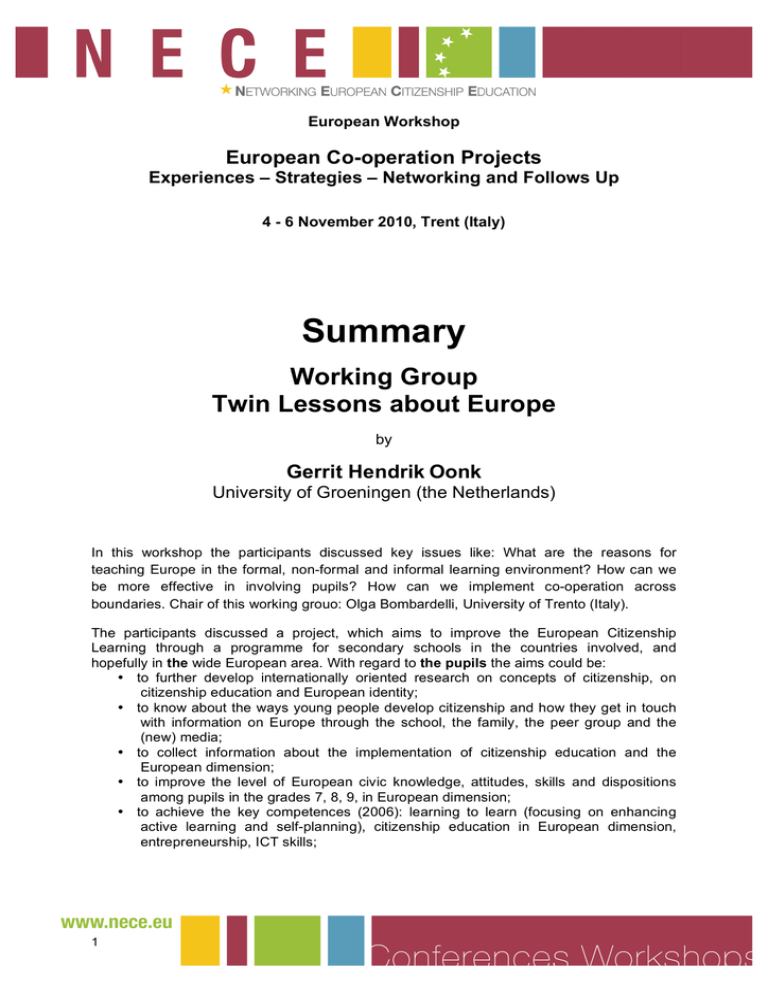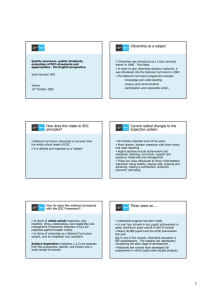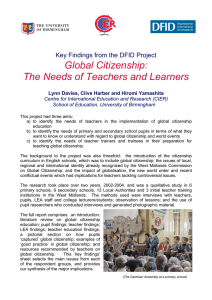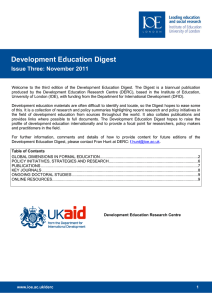Summary Working Group Twin Lessons about Europe European Co-operation Projects
advertisement

European Workshop European Co-operation Projects Experiences – Strategies – Networking and Follows Up 4 - 6 November 2010, Trent (Italy) Summary Working Group Twin Lessons about Europe by Gerrit Hendrik Oonk University of Groeningen (the Netherlands) In this workshop the participants discussed key issues like: What are the reasons for teaching Europe in the formal, non-formal and informal learning environment? How can we be more effective in involving pupils? How can we implement co-operation across boundaries. Chair of this working grouo: Olga Bombardelli, University of Trento (Italy). The participants discussed a project, which aims to improve the European Citizenship Learning through a programme for secondary schools in the countries involved, and hopefully in the wide European area. With regard to the pupils the aims could be: • to further develop internationally oriented research on concepts of citizenship, on citizenship education and European identity; • to know about the ways young people develop citizenship and how they get in touch with information on Europe through the school, the family, the peer group and the (new) media; • to collect information about the implementation of citizenship education and the European dimension; • to improve the level of European civic knowledge, attitudes, skills and dispositions among pupils in the grades 7, 8, 9, in European dimension; • to achieve the key competences (2006): learning to learn (focusing on enhancing active learning and self-planning), citizenship education in European dimension, entrepreneurship, ICT skills; 1 With regard to ensure a better match between the supply of skills and the labour market demand, a smooth transition from school to work is not a question of the last months of the school career, but have to be addressed just from the earlier grades: • to encourage students to make themselves aware about possible developments for the own future in the contemporary society. It is early for 13, 14, 15 old students to carry out an internship, it is not too early to learn about the working conditions and requirements. This helps them in developing advisedly a coherent study career and to choose the right type of the upper secondary school, prepare a portfolio etc.; • to promote intercultural learning and to contribute to the development of a European identity, perceive themselves as active citizens of Europe who share the common European destiny; With regard to Teacher Initial and in Service Training: • Internationally oriented research on teacher training, especially referring to the key competences and citizenship education; • to gain insights in other educational systems referring to the teacher training; • to better know what educational practices make a difference in the citizenship education of the pupils (teaching/ learning methods, school ethos and in the ways schools work with the outside world); • to develop a programme/ curriculum to ensure a bare minimum of common knowledge to all European pupils, respecting the differences of the national school systems; • to improve strategies and teacher training, including the capacity to measure, to monitor and to assess, networking; developing teaching/ learning materials and innovative digital tools for pupils, pupil portfolio, a collective book; • to develop cooperation and leadership skills, communication skills, strategies involving communities, parents, churches, youth organisations and NGO’s and apply methodologies to involve children from various backgrounds; • to sustain political leadership to reach education targets in this domain, formulate recommendations for enhancing citizenship education in a European dimension. • The above mentioned points of discussion were on a later moment implemented into a proposal for a Comenius Multilateral Project under the coordination of Prof. Olga Bombardelli. 2






